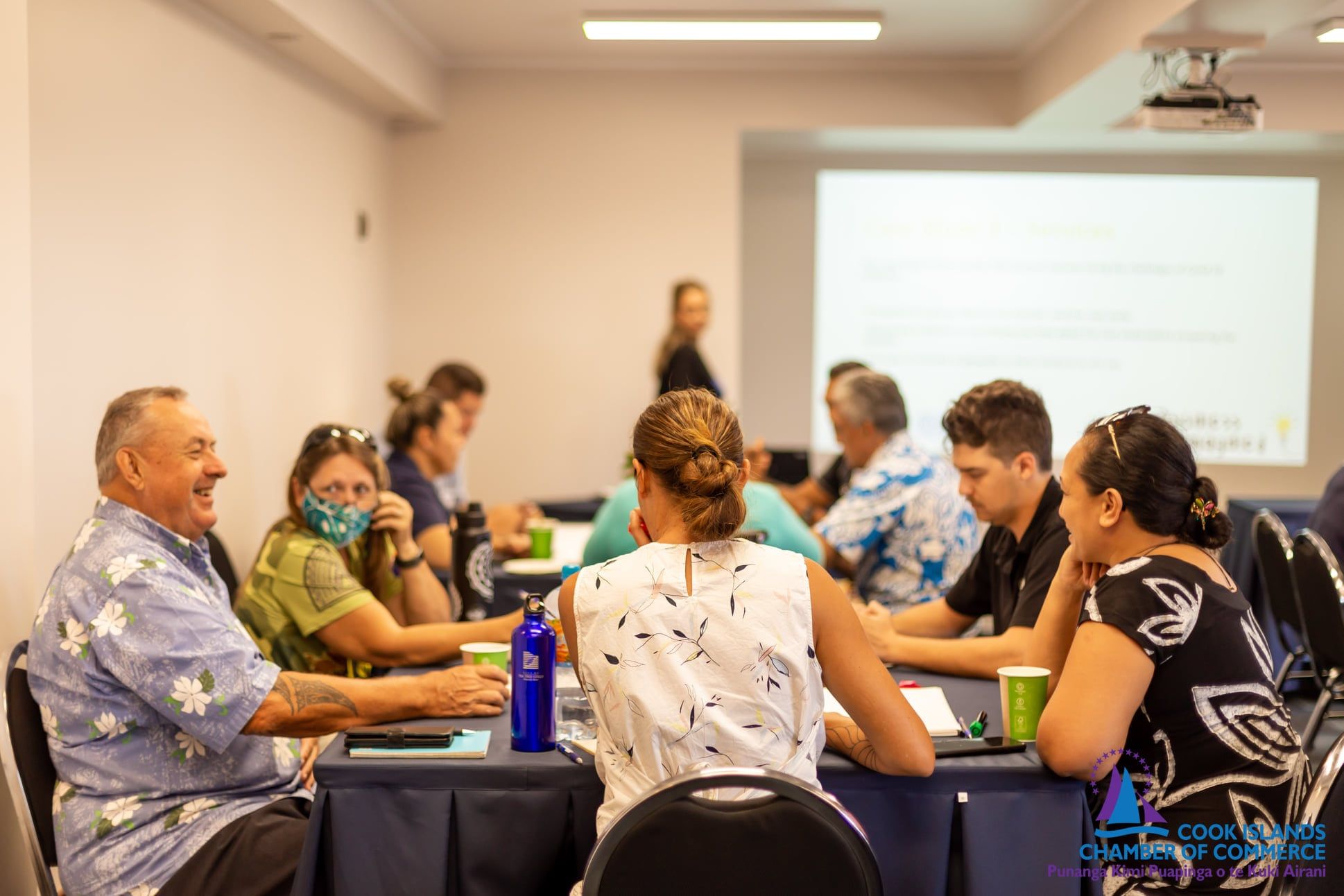

The Cook Islands government is reviewing the draft Cryptocurrency (Ransomware Suppression) Bill 2025, which has raised concerns among business and banking sectors.
Photo/
Cook Islands Chamber concerned over crypto bill's economic risks
It warns that the draft Cryptocurrency (Ransomware Suppression) Bill 2025 could disrupt banking, trade, and tourism while tackling cybercrime.


The Sāmoan Tenor named Pati who turned disadvantage into an operatic destiny

Realm relations in focus as Tokelau-NZ marks 100-year history


‘One of our most trusted leaders’: Tributes flow for a beloved rangatira

The Sāmoan Tenor named Pati who turned disadvantage into an operatic destiny

Realm relations in focus as Tokelau-NZ marks 100-year history

A statement from the Cook Islands Chamber of Commerce (CICC) follows the recent report by 1News on confidential documents leaked to the outlet, which claims that the government is considering sweeping powers to seize "tainted" cryptocurrency worldwide.
Walter Henry, head of the Cook Islands' Financial Intelligence Unit, has confirmed that a draft of the Cryptocurrency (Ransomware Suppression) Bill 2025 remains under review and has not yet been tabled in parliament.
Responding on behalf of the Office of the Prime Minister (OPM), Henry confirmed that the Cook Islands government is aware of the public interest surrounding the bill.
"The draft legislation remains under review and has not been tabled before parliament," the statement added.
He added that the government is following "the proper internal processes to ensure it aligns with national priorities, legal standards, and international obligations."
He cautioned that "it would be premature to make further comment until those processes are complete."
The CICC, in a statement to Cook Islands News, said it has "noted with grave concern recent public discussion regarding draft proposals for a Cook Islands Cryptocurrency (Ransomware Suppression) Bill 2025 and underscores the importance of protecting the country's hard‑earned reputation and financial connectivity while tackling ransomware.
"We have confidence that the government will take a careful, consultation‑first approach consistent with international standards."
The Chambers said that they support decisive action against ransomware and stand ready to help design solutions that work in the real economy.

Walter Henry has confirmed that the draft bill is still under review and has not yet been tabled in Parliament.
"Over the past few years, government-private sector collaboration has delivered results for the Cook Islands-through Covid response programs, the tourism rebound, and supply-chain continuity during shocks -and, most recently, in mobilising climate-resilience finance with local financial institutions.
"That same Cook Islands-led partnership model should be established before any next steps are considered. We look forward to constructive consultations that test draft language with private-sector and banking partners to keep commerce running smoothly.
"We acknowledge the stated policy intent outlined in the accompanying materials: to target ransomware proceeds via a civil, court-supervised recovery pathway, with actions undertaken in and from the Cook Islands and consistent with international obligations. Those guardrails are necessary.
"But whether this can be implemented without collateral damage to clean trade depends on transparent governance, disciplined drafting, bank-tested operating rules-co-designed with those who move the country's payrolls, imports, and visitor transactions every day. The proposed model, if mis-specified or poorly executed, could expose the Cook Islands to material compliance, correspondent‑banking, and reputational risks if not tightly specified and governed."

The Cook Islands Chamber of Commerce has highlighted potential risks to banking, trade, and tourism if the draft cryptocurrency legislation is implemented without careful consultation. Photo/CICC
It further stated that from their perspective, four risks require careful management:
Correspondent-bank access: Overbroad seizure powers or ambiguous extraterritorial effects can prompt de‑risking by NZ/AU partners, slowing card settlements, supplier remittances, LCs/guarantees, and refunds.
Compliance cost shock: Heavier EDD/KYC and documentation burdens fall hardest on the private sector and households, in addition to delaying the government's own procurement and projects.
Repricing of risk: Offshore counterparties may re-rate Cook Islands exposure-widening FX spreads, lifting card and banking margins, shortening tenors, and raising collateral/LC requirements-pushing up costs for clean trade, tourism refunds, and essential imports.
Contracting economy risk: Fiscal projections that accompanied the bill focused on benefits. It did not identify that a risk re‑rating can contract the real economy. Wider FX spreads and risk margins plus thinner NZD/AUD/USD liquidity raise import costs, slow tourism funds, and suppress private investment, producing a contractionary impulse to GDP and employment.

The proposed bill aims to target ransomware proceeds but experts warn it could unintentionally impact legitimate financial transactions and international banking relationships. Photo/Cook Islands News
"We propose that, should the government decide to progress any proposals, the following steps be co‑designed through a structured consultation with stakeholders, including FSC, FIU, banks, and the Chamber: pause and co‑design; secure bank‑led assurance; strengthen business continuity; adopt transparency by default; and uphold victim‑first principles.
"The objective that could be shared is to disrupt cyber-enabled crime while protecting the lifeblood of our economy."
The Chambers added that proven government-private sector collaboration can deliver a balanced framework that contributes to global ransomware suppression and safeguards the Cook Islands' financial connectivity, reputation, and livelihoods.
"The Chamber is ready to work shoulder-to-shoulder to achieve that outcome."
Meanwhile, a previous version of the Cryptocurrency Bill was rejected as Crown Law believed it was deeply flawed and unconstitutional, saying it could validate criminal activity.
Cook Islands News understands that Crown Law, the Minister of Justice, the Cook Islands Law Society, and the Office of the Prime Minister all have a copy of the draft bill for review.
These bodies were approached for comment by this newspaper; amid broad concern over the direction and implications of the legislation, particularly given that a similar bill was previously rejected.
Experts cited by 1News warned that the draft could amount to state-sanctioned hacking - enabling private agents to exploit system vulnerabilities, bypass authentication mechanisms, install backdoors, and even conduct warrantless searches based on "reasonable grounds."
The bill, drafted with input from US-based company Drumcliffe, raises serious legal and security concerns.
The report by 1News also claimed that the bill could reignite diplomatic tensions with New Zealand.
For now, Henry said the government is focused on completing its internal review, indicating that no decision will be made public until the process concludes.
This story was first published in the Cook Islands News.